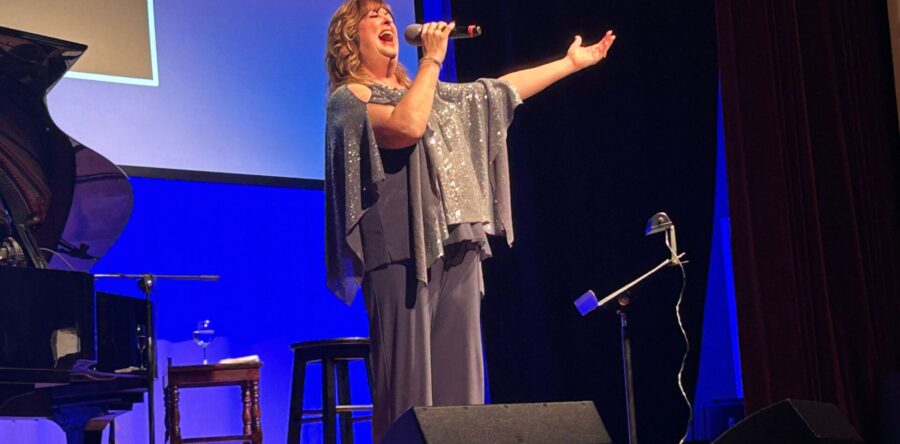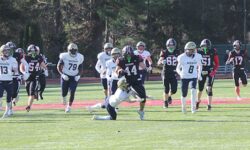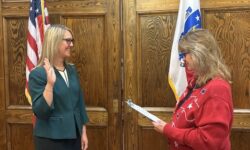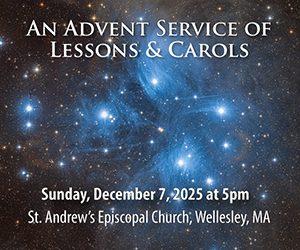By Julia Beauregard
Hometown Weekly Editor
On Saturday, September 23rd, The Needham Great Hall Concert Series returned for its tenth season. The first concert of the series featured Ann Hampton Callaway and Billy Stritch. The night kicked off with a stunning two song performance by the Needham High School Jazz Combo who warmed up the crowd for the Tony-nominated multi platinum selling pop and jazz sensation that is Anne Hampton Callaway. Callaway was accompanied by world famous pianist, Billy Stritch.
Callaway's performance served as a heartfelt tribute to the iconic Peggy Lee, often celebrated as the pioneering female singer-songwriter of American music history. “I’m so excited to celebrate a woman who reminds us of what is possible,” Callaway stated to the crowd before beginning her performance.
In addition to her role as a singer-songwriter, Callaway masterfully demonstrated her prowess as a storyteller during this performance, utilizing it as a vehicle to narrate the captivating life journey of the legendary Peggy Lee, complete with engaging anecdotes and harmonious melodies. Commencing her performance with the timeless classic, "Why Don't You Do Right?," the very song that catapulted Lee into the stratosphere of fame, Callaway skillfully transitioned into "Fever." This particular rendition held special significance, as Lee had famously recorded it during a period of infatuation with the love of her life, a romance that blossomed as she embarked on her meteoric rise to stardom.
Despite the inclement and damp conditions prevailing in Needham on that evening, Callaway's rendition of "Fever" cast a spell over the entire audience, captivating them with her exquisite vocal range. Enthusiastic attendees snapped their fingers and clapped in rhythm to the sultry tune. With remarkable artistry, Callaway reimagined the song to vividly recount how Lee crossed paths with her first husband and soulmate, Dave Barbour, while touring with Benny Goodman's renowned big band in the early 1940s.
The artist skillfully weaved biographical tales of Peggy Lee’s life into her performance, amplifying each tale by seamlessly pairing it with a song that echoed the emotions of that particular chapter in Lee's journey. Perhaps the most emotionally resonant moment of her performance unfolded when Callaway delivered "Two Folks on The Hill," a song Lee had recorded following the dissolution of her marriage with Barbour. Just before launching into the heart-wrenching melody, Callaway addressed the audience with these words: “the song I am going to sing to you is about a simple dream, but sometimes simple dreams don’t come true. So how do you sing about them then?” The tempo of the performance transitioned from a seductive and spirited cadence to a raw and emotionally charged vulnerability. The crowd fell silent as tears welled up in the eyes of the performer. It revealed just how much losing the love of her life changed the entire trajectory of Peggy Lee’s illustrious career.
In Act One of the performance, Callaway played other tunes such as “Where Can I Go Without You?” “He’s A Tramp,” and “Just One of Those Things,” which served as a captivating conclusion to the initial act. Upon her return for Act Two, she launched into the second part of her performance with the upbeat tune, "Just In Time." While Callaway's repertoire encompassed a diverse range of songs that beautifully encapsulated and conveyed the narrative of Peggy Lee's life, it was her rendition of "I'm A Woman,” that truly ignited the audience with fervor, resulting in an enthusiastic crowd joining in the chorus.
Though the most touching part of the performance was when Callaway unveiled a remarkable treasure: a poem authored by Peggy Lee herself, gifted to Callaway by Lee's granddaughter under the title "Clair de Lune," inspired by Debussy's renowned composition. Callaway proceeded to share with the audience that she had set the poem to music, revealing: “It was one of the greatest honors of my life to compose music for her beautiful poem.”
Callaway concluded her extraordinary performance with a mesmerizing encore, spotlighting the touching song "Angels on Your Pillow," a heartfelt composition penned by Peggy Lee for her daughter Nicky. From there, she seamlessly segued into the timeless classic "I'll Be Seeing You" by Billie Holiday, evoking a flood of emotions that left not a single dry eye in the Great Hall.
In a poignant moment amidst her performance, Callaway eloquently expressed, "I like to think that music is the bridge between heaven and earth." This performance served as an open love letter to the world-renowned singer-songwriter Peggy Lee, drawing the audience even closer to her and affirming the enduring power of music to transcend boundaries between this world and the next.
























